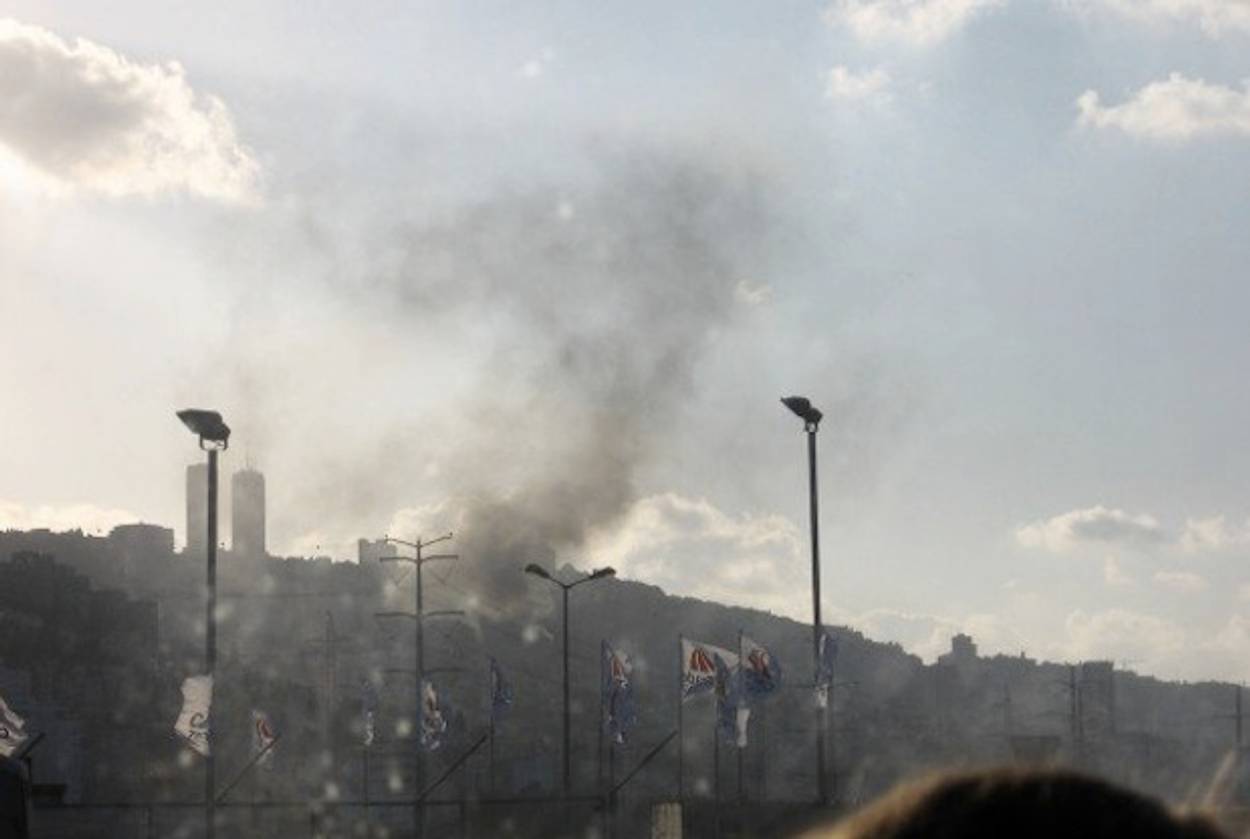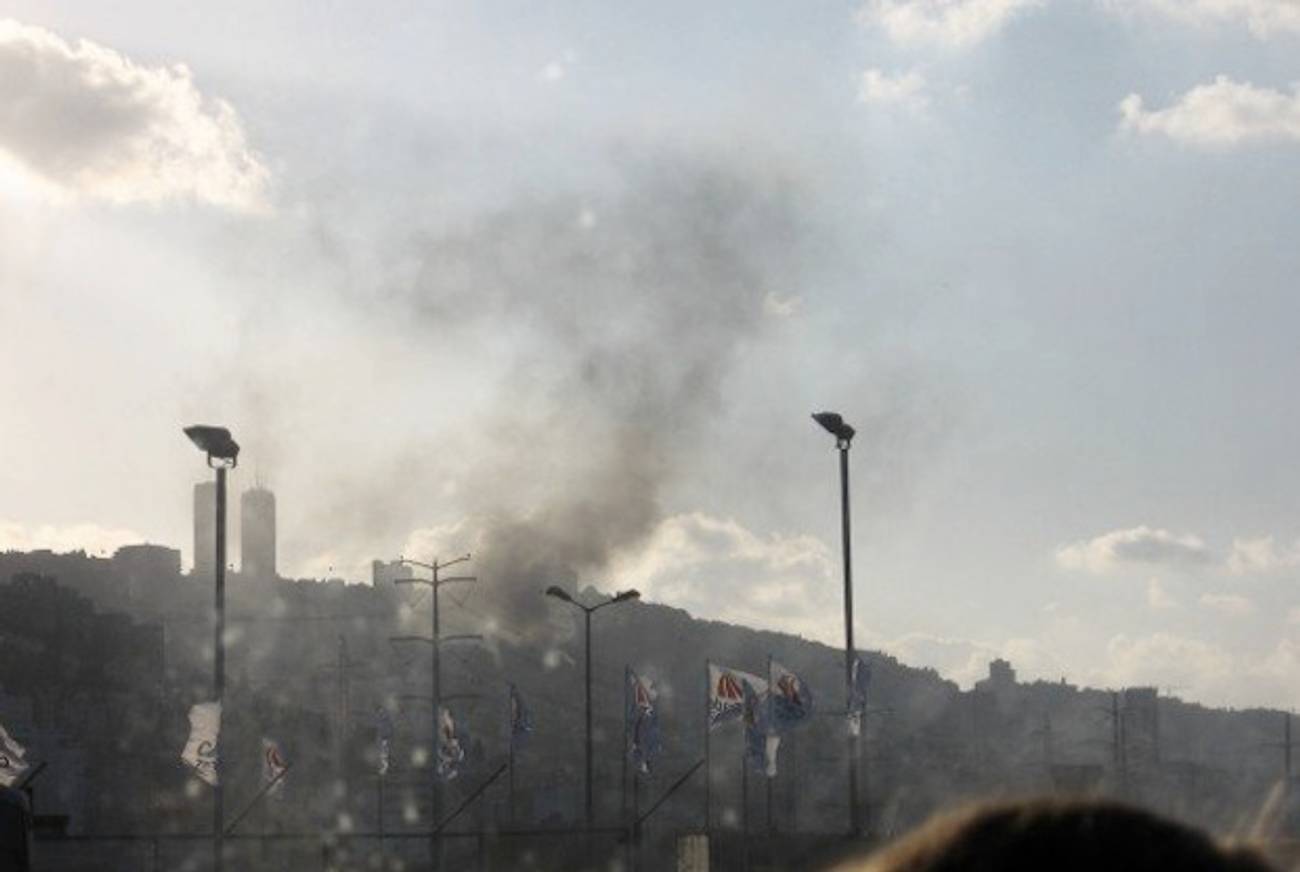A Bus Ride Through the Second Lebanon War
A dispatch from the war’s end




Six years ago today, a U.N.-brokered ceasefire was approved by the Israeli cabinet, slating the end of the 34-day war between Israel and Hezbollah. That day I traveled to northern Israel, which had been battered throughout the month, to cover the ceasefire that many guessed wouldn’t hold.
The first bad omen was that the train from Tel Aviv stopped shy of central Haifa, Israel’s third-biggest city, where I had planned to stay that night. The ceasefire was to go into effect at eight o’clock the next morning, but in the truest spirit of the Middle East, both sides were fighting up until the last possible legal second. To get into town, I nervously boarded a bus with 20 Israelis and a Christian pilgrim from Nebraska. As the bus lurched its way toward Haifa, we all sat tensely listening to pop music until the radio was interrupted by sirens, warning us of incoming rockets from southern Lebanon.
The bus pulled over and we all got out, standing beneath an overpass while the sirens blared. I admit I was completely out of my league and I looked around for instructions on how to stand. A few of the passengers leaned against the highway wall, a few crouched by the curb. An old man held his suitcase above his head. One woman stuffed her preteen son in between her legs, an attempt at reverse childbirth. He was too big now.
We waited. Nothing happened and the sirens died out. We boarded the bus again, sitting in the exact same seats as before. The radio broadcast announced that a Katyusha rocket had struck the North. The bus went on, the conversation coming back in spurts. Some of the passengers phoned their families. The pilgrim told me of his plans to visit Tiberias and Galilee, he explained, where Jesus walked on water. A few minutes passed before the sirens interrupted again.
The bus pulled over and, while we waited in the din of the noise, nearly everyone lit a cigarette. Another endless minute passed before those of us looking back down the road saw a missile strike the area through which we’d just driven. It was like a lightning flash and some of us jumped. Those looking ahead didn’t see it, but a split-second later, we all heard the noise. We all made our noises of own.
The sirens ended again and we hopped back on the bus in a panic, this time hauling toward the station. Everyone began taking pictures and making phone calls. The radio announced that Haifa had just been hit by a rocket. One of the passengers shouted a joke in Hebrew. A few minutes later, the bus pulled into the station.
The next morning, after the ceasefire had gone into effect and held, I went to the place where the missile hit. It was a house at the bottom of a hill. Blocks above it, the famous Bahai gardens sat. The house was gutted and, for blocks away, the windows of the buildings had been shattered by ball bearings.
Meanwhile, just miles north in Lebanon, which had been the staging ground for the rocket fire, civilian death tolls were seemingly impossible to calculate–Hezbollah fighters had cynically hidden themselves in dense population centers. Staggering damage to infrastructure by the Israeli air force totaled over a billion dollars.
But in front of this house, beyond the death and damage, the unnerving legacy of the war was obvious. Israel had unilaterally withdrawn from South Lebanon in 2000 and Hezbollah had filled the void. Taking its orders from Iran, Hezbollah kidnapped and killed Israeli soldiers and, without aiming, fired thousands of rockets into Israel. Nearly half of Israel’s civilian casualties in the 2006 war turned out to be Israeli Arabs. A magnified analog was Gaza where, earlier that summer, Hamas had kidnapped Gilad Shalit and fired countless rockets into Israel’s abdomen. Israel had just disengaged from Gaza the year before.
The worries don’t end there. Six years later (this morning actually), former Mossad chief Danny Yatom in assessing an Israeli strike on Iran’s nuclear facility, explained a likely need for the destruction of parts of both Gaza and Lebanon to stem the flow of rocket fire into Israel. Meanwhile, talk of the necessary withdrawal from the West Bank continues, with many shaking their heads and nodding at the same time.
Cease-fire countdown intensifies fighting [CNN]
“We may have to destroy part of Lebanon to stop rockets” [JPost]
Adam Chandler was previously a staff writer at Tablet. His work has appeared in the New York Times, the Wall Street Journal, the Atlantic, Slate, Esquire, New York, and elsewhere. He tweets @allmychandler.